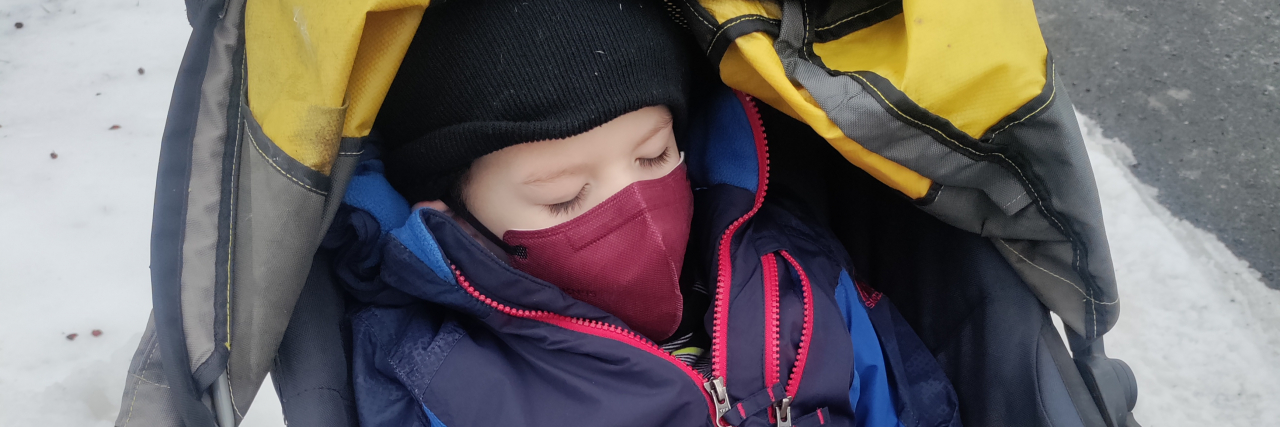Confronting My Own Ableism as a Parent of a Child With Disabilities
Sometimes as a parent of a child or caregiver to a child with disabilities, we must take the time to confront our own ableism.
Nothing prepares a parent to hear that their 3-month-old is very delayed. In fact, up until that day, I didn’t even know it was possible for a 3-month-old to have a delay! Sure, my sweet baby was floppier than other babies, had struggled to gain weight, wasn’t smiling or turning his head, but I was blissfully blind to it until his pediatrician recommended we call our state’s birth to three program for evaluation.
That was the beginning. Our physical therapist, who I will love to the end of time, suggested we show the baby toys, faces, and books right in front of his face until he was able to turn his head. My heart broke a little bit that day too, mostly from the “mom guilt” of not realizing my baby was not engaged because he was not physically able to be. This was the first big step towards including him where he was. That boy loved the interaction with his family!
The day before my son turned 2, he received his ultra-rare genetic diagnosis of TENM1 and an order for his first wheelchair. A few days later, we would receive his first disability parking pass. It took me many months to use that pass. Finally one day, we were at an appointment in the mountains on a very cold and windy day and I knew that my child would have trouble recovering his breathing if we walked a further distance to the hospital entrance. It dawned on me that it was OK to use the disability parking because had a disability and it would greatly benefit him for us to park there.
I realized that my own biased thinking was causing me to be ableist toward my child. Not in the way most people think. I wasn’t intentionally biased toward anyone with a disability — in fact, I was already becoming quite an advocate, but I had been allowing my concern over what others might think, or “who has it worse” to keep me from meeting my child where he is and doing what is best for him.
A few months ago, shortly before my child’s 4th birthday, we began the process of ordering a new lightweight wheelchair that he can push himself. His physical therapist said something I will never forget, “It doesn’t matter how he accomplishes being independent, it matters that he has the tools available to him the be independent.” His new chair will allow him to conserve energy and get where he wants to go, and even give him the option to use it or not without needing an adult to lift him in and out.
Yesterday I took my sweet boy to the library for the first time, an activity that is quite typical to do with a 4-year-old. Their pet lizard was quite frightening and overwhelming, so we left. We took a very long walk in the stroller until he was able to regulate his feelings. I did not think much of it until my amazing mom responded to my social media post, saying she is glad I listen to him.
In that moment, it dawned on me that I don’t need to bend my child to the world — the world should bend to him. Accept him. Welcome him. Meet him where he is — this is what true inclusion means. This is anti-ableism.
My sweet boy, I promise to meet you where you are.

